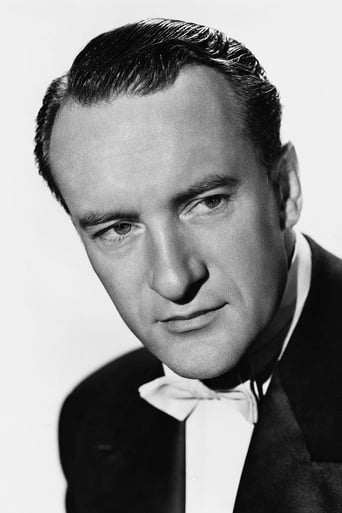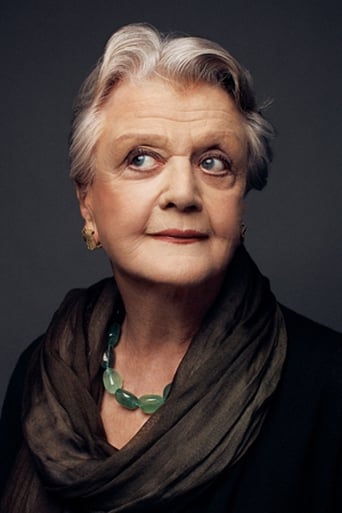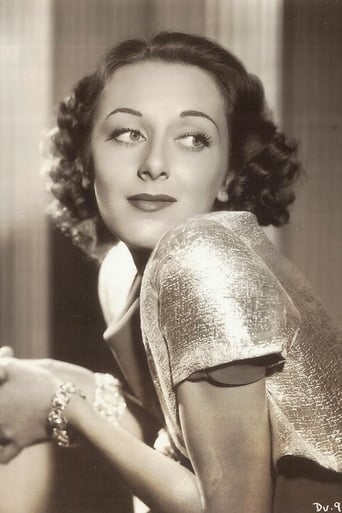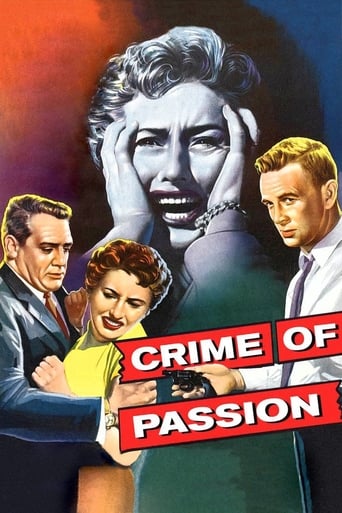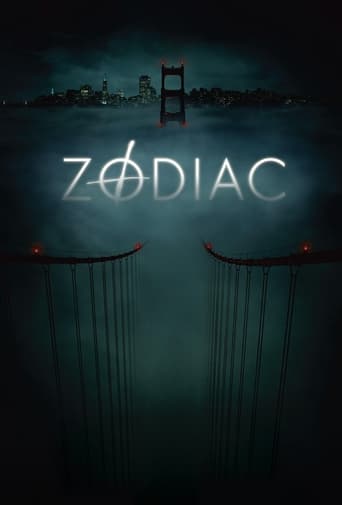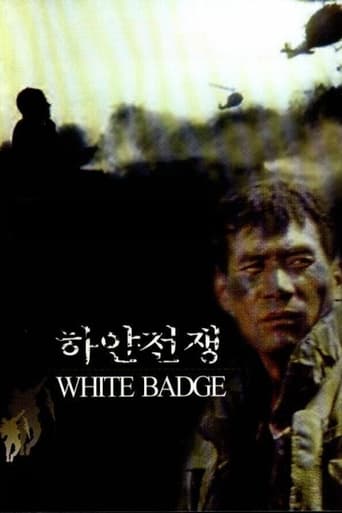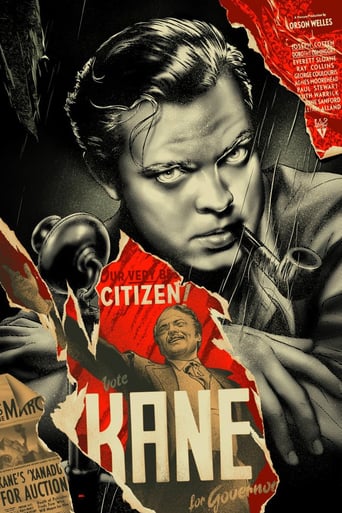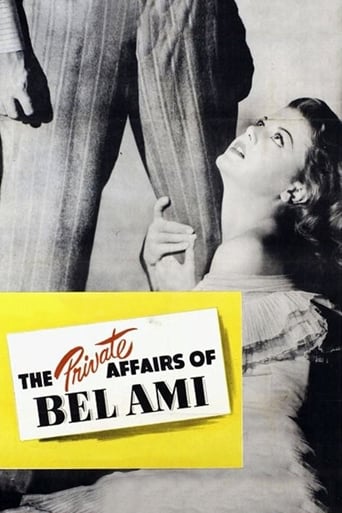
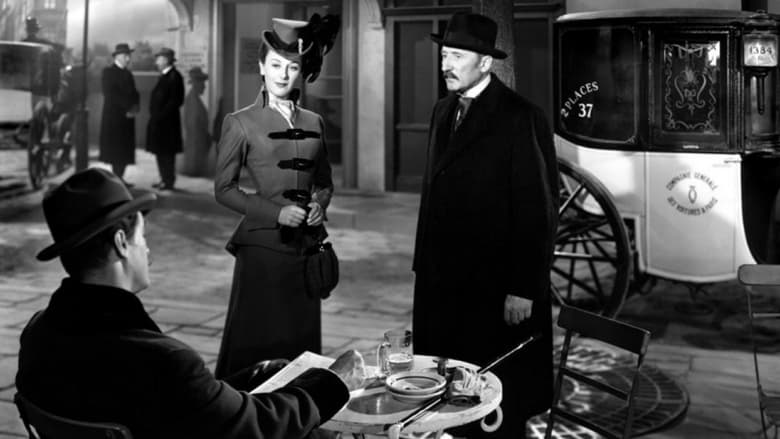
The Private Affairs of Bel Ami (1947)
A self-serving journalist uses influential women in late-1800s Paris and denies the one who truly loves him.
Watch Trailer
Cast


Similar titles
Reviews
In truth, there is barely enough story here to make a film.
This story has more twists and turns than a second-rate soap opera.
This is one of the best movies I’ve seen in a very long time. You have to go and see this on the big screen.
Actress is magnificent and exudes a hypnotic screen presence in this affecting drama.
On paper, a middle-aged, faintly portly George Sanders doesn't seem to befit the image of Georges Duroy, aka. Bel Ami, the caddish protagonist of Maupassant's belle époque novel, and on the screen, he looks no better (meticulously arranged mustaches included), uppity, yes, but not dapper enough to cut the mustard as a congenital heart-breaker to his female admirers galore. However, this Hollywood adaptation, directed by a workmanlike Albert Lewin, resolves to downplay the sordidness in Bel Ami's social-climbing wiles and his misogynist contempt towards the weaker sex, his maneuver is self-seeking, for sure, but not without a proper gentility that is very characteristic of Parisian's silk-stocking upper crust, as if he intimates that it is those women's own fault of being uniformly bewitched by his natural appeal, as if he were merely a grudging condoner, and it always takes two to tango, whether it is Clotilde de Marelle (a 22-year-young Lansbury, already playing a widow with a tot under her belt), who pledges her subservient love to him at the expense of her own pride; or Claire Madeleine Forestier (Dvorak), the business-savvy wife of Georges' comrade-in-arms-turned-munificent-benefactor Charles Forestier (Carradine), voluntarily ties the knot with Bel Ami when she sees fit, business-wise; or Madame Walter (Emery), a modest-looking minted housewife, who foolishly takes their affair a bit too seriously, and her nubile daughter Suzanne (Douglas Rubes), gravitated to him like a witless moth to the unaccountable fire.Therefore, it is not strange that George's belated redemption is vamped up by a pall of Hollywood romantic soft touch (Darius Milhaud's majestic score is also here to help), and then almost immediately dissipated by the cockamamie dueling face-off, that excruciatingly camp struggle of his rival is a whopping embarrassment even by Hollywood's dated standard at that time, which, in hindsight, could be second-guessed as a deliberate move to diffuse the fatalistic heaviness in favor of a sanitized feeling of facile poetic justice. Yet, for all its foibles, Gordon Wiles' sumptuous production is a florid delight to sore eyes, and against the disadvantageous character arc, many of the distaff players manage to hold out their own stance, a slightly slouching Lansbury is excellently expressive apropos of her dramatic chops; Ann Dvorak takes pleasure and pride in rendering a beguiling ambiguity that manifest that she is not a victim but his equal in the aftermath, and Frances Dee, as Marie de Varenne, the sole rejector of Bel Ami's advances, makes her virtuous retort a welcome tonic to the picture's often disinterested pace and Sander's phlegmatic central performance. Another boost is Max Ernst's painting "Temptation of St. Antony", materializes itself for several seconds in its chromatic flair, the sole exception in this magnificently restored black-and-white eye-catcher, which, after all, belies its sensational tagline on its original title "the history of a scoundrel!", more a Punch-obsessed schemer who is ironically blind-sided by and eventually dies from the aristo-recognition he is spoiling for.
In the 1880's, a handsome rake schemes his way to the top of French society leaving a trail of exploited women in his wake.I was about to slam Sanders' performance as a wooden one-note. Note how in the many close-ups his expression rarely changes, conveying little or no emotion, regardless the situation. Then it occurred to me. That's exactly right for such a heartless egotist as Duroy. In fact, he feels no emotion. Instead he's a walking calculator in the way he uses people. In place of warmth or animated charm, he seduces women with a strongly masculine presence and complete self-assurance, which Sanders conveys, in spades. Note too, how in the dueling scene, Duroy looks on impassively while his opponent musters strength to shoot him. Now a lack of emotion while staring death in the face is either evidence of an iron will or a simple lack of feeling. Of course, as an actor, Sanders can emote subtly or otherwise when called upon, as his lengthy career shows. So I figure his impassive manner in this movie is intended to define Duroy's character, and is not a deficiency on either the actor's or director's part.Anyway, the movie itself amounts to a triumph of parlor room refinement. I especially like Lansbury. Her baby-face Clotilde provides enough meaningful emotion to engage the audience in ways that Duroy does not. In fact, the actresses, including a poignant Marie Wilson, are all well cast. Still, pairing the 40-year old Sanders with a girlish Douglas, half his age, amounts to a real stretch. But catch some of those parlor room sets that are doozies. The one with the checkered floor and striped wall had me cleaning my glasses. Overall, it's an oddly affecting morality play, with a style and taste that make even the painted backdrops somehow appropriate. Too bad this was the great Warren William's (Laroche) last movie. In terms of a commanding presence, he and Sanders belong together, as William's pre-Code films abundantly show. Nonetheless, this is one of the few features of the time to make a thoroughly dislikable character the central figure. And that took some guts. No wonder the film was an independent production.
The Private Affairs of Bel Ami (1947)The weary diffidence of George Sanders makes this movie what it is, but there is a rather large cast of important characters who hold up their types, too. Only Sanders in the lead role (as the Bel Ami) has full roundness to his character. Look, however, for John Carradine and Elsa Lancaster, both welcome and convincing, though they only appear sporadically. Ann Dvorak takes on the second most important role and she's terrific, cast perfectly and acting with cunning.The story is a period piece, set in late 19th century France. It centers really around one idea--Sanders, who is portraying a real lady's man, gets several women interested in him (or he in them) with somewhat suspicious goals (like money) under his hat. The first half of the movie has these women at odds with each other and Sanders playing his hand just so. Then he lands one of them and a different kind of ambition takes over his life, with some tricks to become yet wealthier. And the movie shifts. It gets fairly complex, based on a French novel by Guy de Maupassant. It has enormous potential, and yet it never quite gels. You can imagine a "Magnificent Ambersons" kind of construction to make it work, but that would require more length. And Orson Welles.The writing is naturally amazing at times. The characters, as much as they get developed, are intelligent and say intelligent things. There are two aspects that plague this version. First is Sanders himself. He's one of my favorite actors of this era, but he has a limited kind of style and he's miscast here, lacking the charm and fast wit you would need to pull off all these machinations, some romantic and some political. Second is the way the story is told, cramming the pieces together, jumping from one moment into the future as if there wasn't time to mention that so and so meanwhile died, or that our main man in fact got married. Sometimes this kind of economy makes for a fast movie, but here it feels too harshly edited.And then there is the slight falseness to the filming, all done in studios, with hints of the city in the background, beautiful but unconvincing light, and sound that is dubbed or added and is sometimes painfully wrong (Sanders whistling without moving his lips, Carradine playing a complicated accordion piece on an instrument without keys, footsteps on a stone walk that sound like a wooden stage, a singer who...you get the idea). The director, Albert Lewin, had a thriving career writing for silent movies (there is an irony in that, I suppose), then he became a producer in the 1930s before switching to directing just a half dozen films in the 1940s. Only one of these has a reputation--The Picture of Dorian Gray--with this one a kind of runner-up. But whatever its promise, it struggles to take off as either a romantic heart-tugger or a social high drama.Small tidbit--Uma Thurman and others are filming a remake of this story, and naturally all the womanizing has taken on a sexual quality, from what I can see. That's a strength with the way Lewin shot and edited this early one, because we get the way the leading man is a selfish cad without having to get distracted into the prurient details that would distract, even further, from the larger plot.
Maupaussant's roaring tale of the rise of Duroy is tamed slightly in this version, with George Sanders bumbling rather scheming his way to the top. It's let down by some poor production values, although the dueling scene at the end is well handled. Worth watching for the shocking view of 'The Temptation of St Anthony' in ultra-modern colour (about three quarters the way through) alone.


